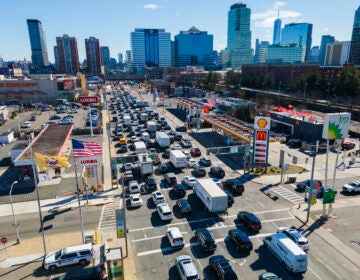What New Jersey’s court ruling on pensions means for taxpayers
New Jersey’s state Supreme Court ruled Tuesday that the state cannot be forced to increase contributions to the pension funds for public workers.
Here’s a look at the implications for public employees and their unions, taxpayers and politicians.
PUBLIC WORKERS
The court was clear that the state government still must pay retirees the pensions they have been promised.
But it says it will not dictate how much the state must contribute ahead of time to the funds from which the pensions are paid.
The funds are now solvent, but unions have warned that some will not have the money they need to pay annual costs within the next decade.
Without the court making mandates, it will be up to lawmakers, the governor and unions to work out the funding. Gov. Chris Christie, a Republican, says he has a new plan that would make public workers’ health plans less generous and use the savings to fund pensions. Exis ting defined-benefit pensions would be frozen under his plan, and workers would get new 401(k)-style plans. Unions and the Democrats who control the Legislature have not agreed to that concept.
TAXPAYERS
A ruling in favor of the unions may have forced either tax increases or major cuts in state funding to other programs to pay for contributions. That’s off the table for now.
But the costs of paying for pensions will grow more the longer more money isn’t put into the funds. So delays would be expensive for taxpayers in the future.
GOV CHRISTIE
The ruling is a victory for Christie and means he does not have to pull apart the budget that ends June 30 or rework the one that he’s proposed for the fiscal year that starts July 1.
It also appears to give him an advantage in negotiations with the Democratic-controlled Legislature and unions on the fate of pensions. Both Republican and Democratic lawmakers are calling for working some thing out.
The ruling could help Christie another way. When he was a candidate for governor six years ago, he pledged to remake a state Supreme Court that he found to be too deeply interested in making policy rather than interpreting laws.
He could contend now that he has done that.
Three of the court’s seven members are his appointees, and all three sided with him in the ruling. Another member is a lower-court judge who is serving on the court temporarily because Christie and the state Senate are at an impasse over a nominee to fill that slot permanently.
Chief Justice Stuart Rabner, who Christie re-nominated as chief justice last year, was one of two who dissented.
WHYY is your source for fact-based, in-depth journalism and information. As a nonprofit organization, we rely on financial support from readers like you. Please give today.




